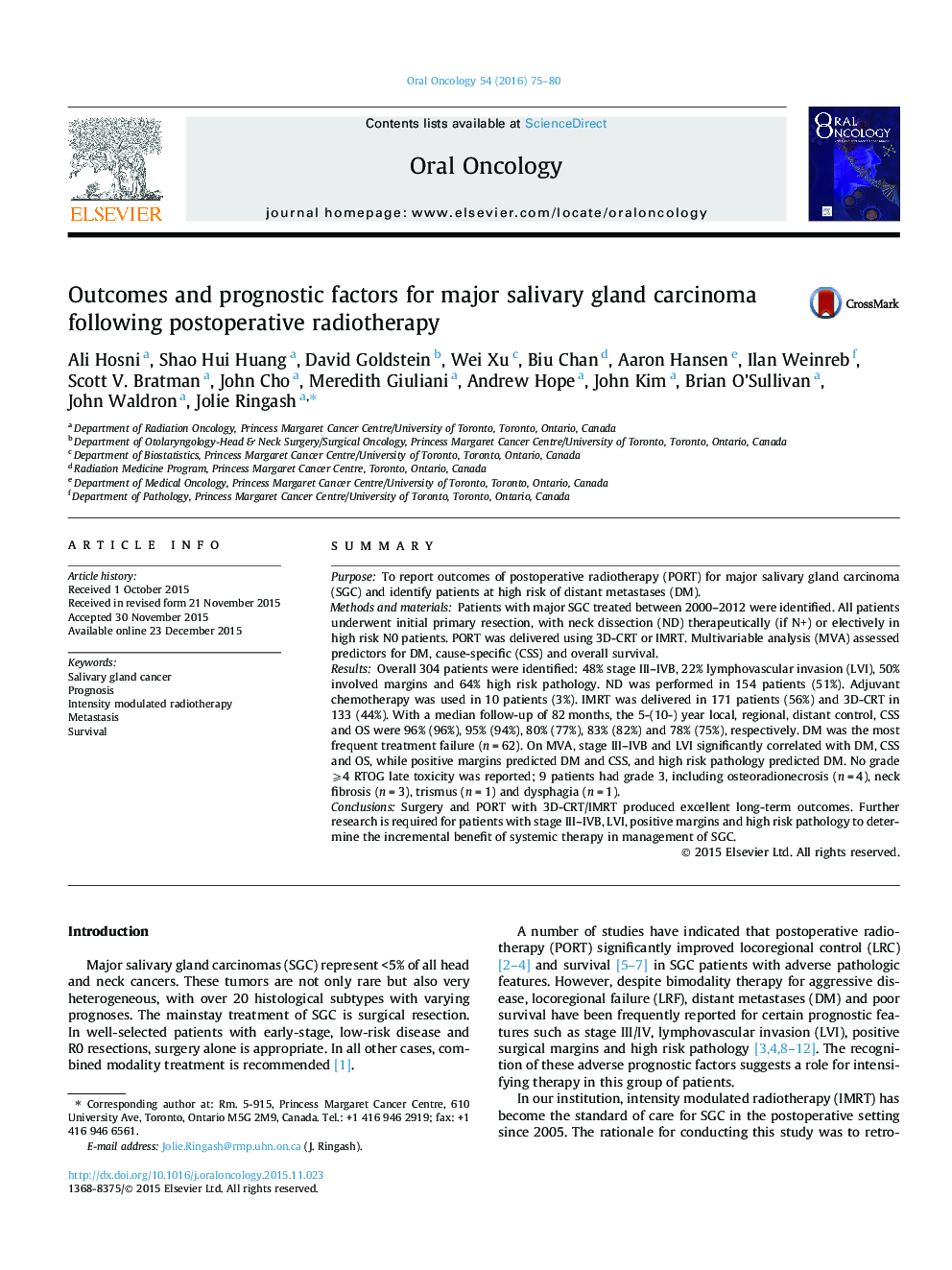| کد مقاله | کد نشریه | سال انتشار | مقاله انگلیسی | نسخه تمام متن |
|---|---|---|---|---|
| 3163782 | 1586256 | 2016 | 6 صفحه PDF | دانلود رایگان |
SummaryPurposeTo report outcomes of postoperative radiotherapy (PORT) for major salivary gland carcinoma (SGC) and identify patients at high risk of distant metastases (DM).Methods and materialsPatients with major SGC treated between 2000–2012 were identified. All patients underwent initial primary resection, with neck dissection (ND) therapeutically (if N+) or electively in high risk N0 patients. PORT was delivered using 3D-CRT or IMRT. Multivariable analysis (MVA) assessed predictors for DM, cause-specific (CSS) and overall survival.ResultsOverall 304 patients were identified: 48% stage III–IVB, 22% lymphovascular invasion (LVI), 50% involved margins and 64% high risk pathology. ND was performed in 154 patients (51%). Adjuvant chemotherapy was used in 10 patients (3%). IMRT was delivered in 171 patients (56%) and 3D-CRT in 133 (44%). With a median follow-up of 82 months, the 5-(10-) year local, regional, distant control, CSS and OS were 96% (96%), 95% (94%), 80% (77%), 83% (82%) and 78% (75%), respectively. DM was the most frequent treatment failure (n = 62). On MVA, stage III–IVB and LVI significantly correlated with DM, CSS and OS, while positive margins predicted DM and CSS, and high risk pathology predicted DM. No grade ⩾4 RTOG late toxicity was reported; 9 patients had grade 3, including osteoradionecrosis (n = 4), neck fibrosis (n = 3), trismus (n = 1) and dysphagia (n = 1).ConclusionsSurgery and PORT with 3D-CRT/IMRT produced excellent long-term outcomes. Further research is required for patients with stage III–IVB, LVI, positive margins and high risk pathology to determine the incremental benefit of systemic therapy in management of SGC.
• PORT with 3D-CRT/IMRT for salivary gland carcinoma achieved excellent outcomes.
• DM was the most frequent cause of treatment failure and cancer-related mortality.
• Prognostic factors were stage III–IVB, LVI, R1 and high risk pathology.
• Further research is required to determine the incremental benefit of chemotherapy.
Journal: Oral Oncology - Volume 54, March 2016, Pages 75–80
